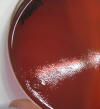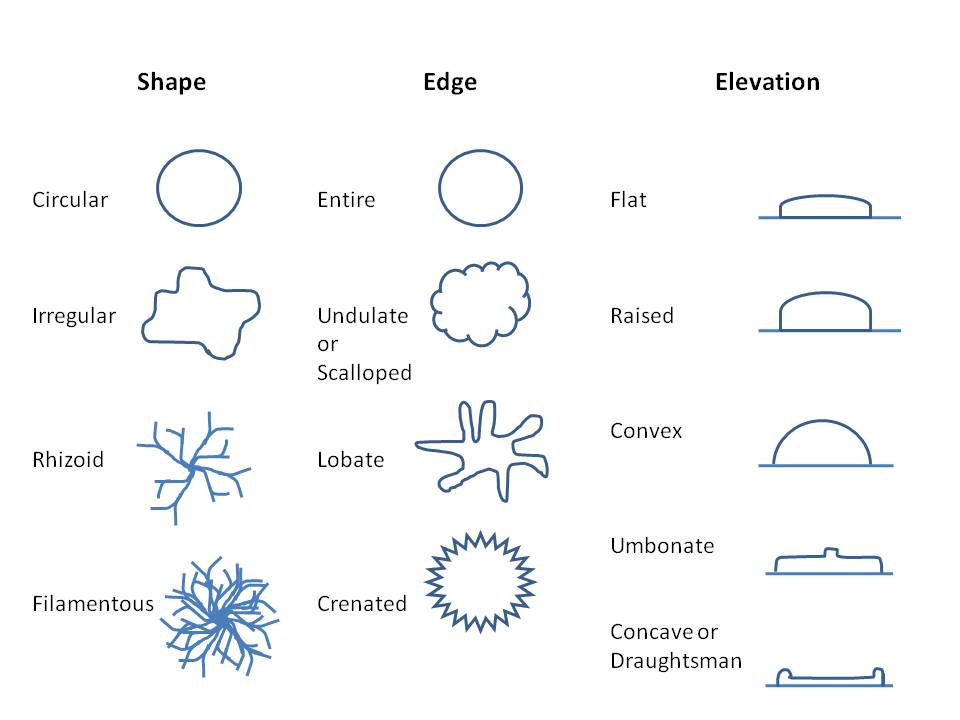Morphology
Refers to either the appearance of colonies on media or the appearance of individual organisms in the microscope.
Colony Morphology (see diagrams below)
Shape
- circular
- irregular
- radiate (radial ridges)
- rhizoid (irregularly branched)
- spreading
- swarming
Proteus mirabilis swarming on blood agar
Size
in mm, or pinpoint
Texture
- granular
- dry (chalky)
- friable (crumbly)
- mucoid
- butyrous (like butter)
Surface
- smooth
- dull
- glistening
- beaten-copper (small craters)
- ground-glass (tanslucent and refractile)
- wrinkled
Colour
Edge
- entire (even)
- lobate (in lobes)
- undulate (wavy)
- erose (irregularly toothed)
- fimbriate (fringed)
- effuse (thin, spreading)
- rhizoid (feathery)
Elevation
- flat
- raised
- convex
- umbonate (raised button in centre)
- draughtsman (flattened in centre with raised edges)
Opacity
- transparent
- translucent
- opaque
Odour
- present
- absent
- resembles?
Haemolysis on blood agar ( see also entry on haemolysis in general glossary)
α, β or none
Cellular Morphology
Colour
- gram positive (purple)
- gram negative (pink)
Shape
- Coccus (plural=cocci)
- Bacillus (plural=bacilli)
- Straight, curved or spiral
- Ends: rounded, square, pointed
Size
- large
- small
Arrangement
- single
- pairs
- clumps
- tetrads
- palisades (side by side)
- chains (end to end)
Spores
- Present or absent
- Central or terminal
- Causing distension of cell or not
Other descriptors
- Beaded- crystal violet concentrated in spots along length of bacteria
- Bipolar – stain concentrated at each end of cell
- Branching – cells bifurcate
- Coryneform- club shaped
- Fusiform- long, thin cells pointed at each end
- Pleiomorphic – variable appearance (shape/arrangement)
- Variable – both gram positive and negative individuals
Last modified: Thursday, 16 November 2017, 1:06 PM

